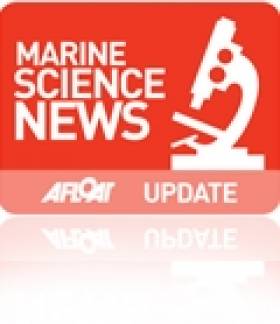Displaying items by tag: primary schools
Marine Education Programme Makes a Splash
The wonders of Ireland's marine life came to the LifeTime Lab in Cork on Monday with the launch of a fortnight of school visits in tandem with the Explorers marine education programme for primary schools.
The programme aims to empower primary teachers to include marine themes in their classes via specially devised lesson plans and support services adapted to the curriculum, including in-service cources on seashore ecology, marine history, arts and crafts, and mathematics.
“The Explorers Programme focuses on Ireland’s two greatest natural resources – our vast undersea territory and our young people,” said Dr Peter Heffernan, CEO of programme partner the Marine Institute. “If Ireland is to develop a thriving marine sector in tomorrow’s world, then it will be the young people of today who will make it happen.”
The programme - which has already been rolled out to some 40 primary schools in the west of Ireland from Mayo to Clare, and in six schools in and around the capital - is a collaborative effort between the Marine Institute, Forfas Discover Primary Science, the Galway Atlantaquaria and Galway, Mayo and Clare Education Centres in the west, and the Bray Sea Life Centre and Blackrock Education Centre in the Dublin area.
Manager of LifeTime Lab Mervyn Horgan said his team was "delighted to be involved" in the pilot series of workshops.
"We are always looking for new and innovative ways of engaging in science education and raising the awareness of marine science in Cork classrooms can only bring long term benefits,” he added.
For more details visit the Explorers website at www.explorers.ie.





























































